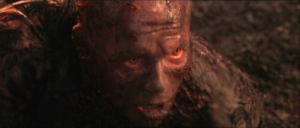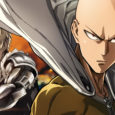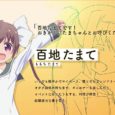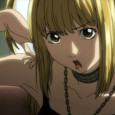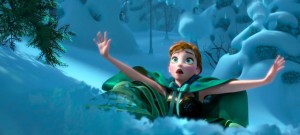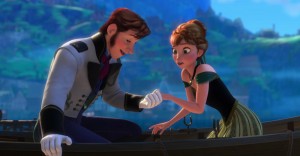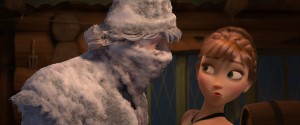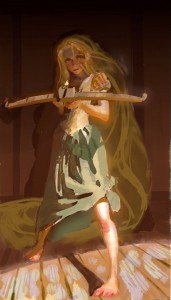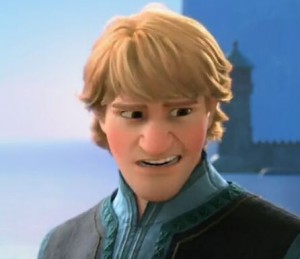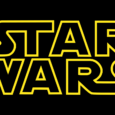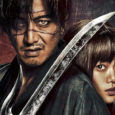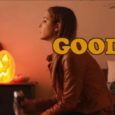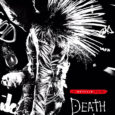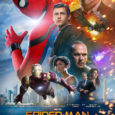Fair Warning: if you are potentially triggered by discussions focusing on Old White Guy relationships, this may not be the article for you. Like Gandalf and Saruman (who was a nice guy in all those other Tolkien books that you haven’t read), for instance. Saruman was understandably jealous of the trail of happy, clapping halflings that I imagine trailed behind the Mithrandir everywhere he roamed. Theirs was a friendship doomed to fail, as are curiously many others that are loved and lost our most beloved books, movies, and shows. Hell, like most things, there’s even a whole page dedicated to the Evil Best Friend trope. Why is this trope so popular though? Just because it’s a guaranteed way to tug at our heart strings? Or is it because we relate and remember that our best friend in middle school became that bitch/bastard we hated in high school?
To examine these relationships further, let’s look at another common role: the Eccentric Mentor, here we have our grey and bearded Dumbledores and Obi-Wans. Something beyond facial hair they have in common? Former best friends that went to the dark side.
Wouldn’t it fuck you up to have to kill your friend? Worse, what would happen to the failed hero, when they realized they couldn’t quite defeat their frenemy and the world spiraled in to darkness because of it? You’d probably live in a cave and tell everyone you’re a wizard like Ben Kenobi, too. Our kooky mentors are always far more interesting when it is revealed that their dedication to guiding young heroes is driven by wanting to see their proteges succeed where they ultimately failed. The hero, then, must also take in to account that the big bad and symbol of all that is unholy, was also a person, friend, and child. This kind of humanization of both good and evil characters creates a way more relatable and heartrending conflict.
And when we finally get that long awaited Lion King direct-to-video prequel, I bet we find out that Rafiki was bros with the evil Koba from the most current round of Planet of the Apes movies. Of course the story doesn’t end there, or usually even start there. We first meet these characters as they attempt to take on the polarized conflict that arose out of their crumbling friendships by looking toward the next generation to succeed where they failed. Often the teams that they assemble are questionably young, but determined and righteous.
Is this fair? Wouldn’t it been nice for the world if Avatar Roku had handled his own best friend before he went all empire building and killed off all the poor dragons? Sure. Yes. Should have tried that out, Roku. But, story-wise, occasionally bestowing pearls of wisdom to the ragtag band of misfits divinely selected to clean up your mess is a far more interesting way to go. There’s a reason why season 3 of Buffy is the best season (couldn’t just talk about bros for an entire blog piece) and why by season 22 of the comics, we’ll see the disciples of the two best slayers duking it out while Buffy and Faith cheer from the sidelines. This trope naturally produces two stories and two sets of protagonists: the fall, in which worlds fall in the wake of the ruined friendship and the fix, in which a new crew is burdened with the mistakes of the past. This is the shit that gets Hollywood salivating at the prospect of turning trilogies into unnecessary quartets along with bonus prequels and origins swill.
The conflict then, is is more than just good versus evil, it’s about the next generation solving the problems caused by those before it, and often it’s done through unity and healing, rather than just straight forwardly chopping at evil with a sword/saber/wand. This type of story is different then and acknowledges that the Xavier’s of the fictional world didn’t just fail to stop evil, they failed to save a friend.
To properly mourn and appreciate, here’s a slide show of my favorite shattered friendships.
Kaitlyn D’Agostino
Staff Writer
I am going to utter the current “Deplorable Word Phrase”: I didn’t really care much for Frozen. Collective gasps. “But Max,” you say, “You don’t like anything, especially if it’s popular, what else is new here?!” And to that I say, “[I] can’t hold it back anymoOOOOore!”
I am well aware that my opinion here is rather late (though I’ve been consistently vocal) and a minority amongst the masses. The movie has already smashed box office records, is still lingering in actual movie theaters all whilst copies of it on DVD and Blu-Ray fly off store shelves. It’s headed to Broadway. It’s a behemoth of a film. Why it’s so big though sort of leaves me scratching my head. It’s cute, sure. Did it deliver what it wanted to do. I guess? Will it be better on stage? Yes, 100 % better. Does it deserve the extreme accolades? I don’t think so.
I am not trying to change anyone’s opinion on the film, or say you shouldn’t like it. These are simply my opinions from the perspective of an aspiring playwright, screenwriter (particularly for the animated medium) and children’s book author. This film falls into my preferred career niche and something I want to be a part of in the future, so I tend to want to consume and judge material like this as to know what to do for my own work.
Also, despite all evidence, I do not hate Disney. In fact Disney films have had such an impact on my own writing that in contrast to my recurring role as cynic and curmudgeon (as Jen can attest), my own creative work tends to be pretty light, frothy and frilly fare often in the fairy tale genre. Wannabe musicals; they happen under my pen.
I am critical only because I care and expect good work from people involved in projects such as this. Directors, fellow writers, editorial to ink and paint (software engineers and animators hah) who are, in contrast to me, being paid to do this work and are labeled as professionals should do the best they can do. In the case of Frozen I feel these people are being lauded for something that was only mid-tier. That’s not inherently the staff’s fault. Undoubtedly cutting a year off of development to push a 2013 release certainly did not help it and I think that act alone is the source of a lot of the film’s problems. I would have loved to see what it would have been like had it come out this December.
“SO MAX, THAT’S GREAT BUT WHAT’S ACTUALLY WRONG WITH THE MOVIE?! IT’S CUTE! SISTERS! SUBVERSION!”
Charming at times with spatters of wit and interesting, introspective elements to explore (abuse via bad parenting rooted in good but misguided intentions, repression of self, self-“ice”olation, on the flip-side being shut out despite an able freedom her sister doesn’t have, sister relationships, fearing hurting others, etc) with great potential at it’s best, half-baked magic origins and rules, vague kingdom politics, and underwritten plot at it’s worst, Frozen was overall hurt by it’s own animation direction/cinematography, writing, and above all ambition. It just tried to do too much.
First, if you’re expecting (perhaps cringing in anticipation) a big essay on race, appropriation, representation, and the skinny white Disney princess problem that people usually start with when criticizing this film, I am not going to go there here. Others have written way, way better insights about these elements than I could possibly do here right now without doing another entire post. I did write a post last year regarding the eyebrow raising parts of Frozen‘s development and Disney’s white princess problem here. I also had some additional words regarding the euro-centric settings (it needn’t have been) and the back and forth decisions regarding the film to ensure families with boys come see it and Disney’s discarding of the original fairy tale The Snow Queen in a conversation held here. There are problems, and they need to be addressed. Luckily the Pacific Islander Moana or it’s new (groan worthy) title Spirited (can we not with the adjective titles please?) is the next slated Disney “Princess” film, but the fact Disney churned out (including Merida) 4 white princesses after introducing their first African American one (who was a frog for 2/3 of the film) in rather quick succession is rather…questionable. American marketing pandering be damned. Disney needs to rethink their storytelling that way.
Having finally seen the actual film on a large HD television, after skipping out on it in theaters and only seeing it on laptops since, I actually can say it’s not nearly as bad as I was expecting it to be ever since they announced the big plot overhaul. Olaf, surprisingly, despite his awful design is a highlight of the film. As was Kristoff’s personality. Otherwise aside from the above racial and just…boring sameness problems, I have three main complaints why as a film as released, was just “meh”;
Problem #1
Inconsistent cinematography, sometimes strange camera angle choices which correlate to some poor visual thematic choreography with songs (‘Let It Go’) and or framing (I have a hard time describing this, bear with me).
The cinematography and or direction can be pretty in the film. It’s probably more the color theory at work. I loved the icy ships cracking at the end with Kristoff and Sven having to run through them. These scenes yeah, would look great with the 3D glasses. The scene of Anna pursuing Elsa in the ice castle whilst singing a reprise of ‘For The First Time In Forever’ up the stairs was one of the definite highlights and already had me thinking about a Broadway set. But for a great part of the film, there are shots and the way they were “filmed”, that for me, just felt…off. It is hard to say exactly why, I am a writer with very visual inclinations but technical knowledge and terminology does allude, so the actual details about what is wrong I can’t say for sure so bear with me as I describe them.
Watching the film I had a strange sense of something not feeling quite right and I felt compelled to re-direct and or rewrite certain actions and making other directing choices in my head as I watched. That’s not a good sign for me. I want to be awed by a film and not have to think about that.
For instance watching Anna hoist and pull herself up on the pulley system during ‘For The First Time in Forever’ to get a good look at the harbor and the arriving ships, while a somewhat memorable image, is not terribly striking for some reason; but it should have been. I am not a traditional medium purist vs. digital per se, but I felt the pulley scene, had it been animated in a flat, 2D style animation and had utilized the techniques we’ve seen with some of Disney’s best 2D work that Frozen pulled from visually (The Little Mermaid, Beauty & The Beast, Aladdin, Tarzan, Hunchback of Notre Dame, Treasure Planet) or had they done a more Paperman approach, Anna, with her green dress and hair ribbon whipping in the wind while looking at the sails, could have had a really iconic moment. Perhaps even in the 3D style if the angles were different. Something was off.
” BUT MAX ‘LET IT GO’ WAS SO PRETTY THOUGH WASN’T IT?!”
Elsa’s ‘Let It Go’ number for me actually suffers from some poor direction ranging from her choreography and then the “camera-work”. It did not feel big enough. Her actions did not match the lyrics of her song, the emotions involved did not fully translate. It was”shot” too far away from her most of the time, nor took full advantage of her power-set. The foot stomp was great, the rest was strange, too strolling and sparse. Where is her really unleashing her powers and letting loose? Why isn’t she tired? Where’s the storm? The angle choices and distance to Elsa during her dress’s transformation was a strange one. Too stoic. How could you do a dress transformation, let alone an icy silver-blue dress in a Disney film and not via angle do a nod to Cinderella, Walt’s personally favorite animated sequence?! Why not do a nod to Beauty & The Beast ballroom segment as you created the castle?
This scene also had the infamous braid phasing through her shoulder animation cheat which when spotted made a lot of animation students unhappy. Why? Because they’d have been chewed to death if that segment was submitted in a class. Disney is considered a creme de la creme pillar of animation; such poor editing or flat out cheating a bit and hoping people wouldn’t notice is just lazy. The awful zoom out and then cut back at the end of the song with Elsa on the balcony felt jarring and cheap to me.
The entire scene required a much more sweeping and organic pans, more intimate close-ups, and just more fluidity, exuberance, anger, and above all; magic. I keep thinking of Disney’s own Spring Sprite from Fantasia 2000, perhaps one of the most beautiful characters and animation Disney has ever done. Elsa as a magic user should have been given a similar fluidity once she embraced her powers. She sadly was not.
Tumblr user blueandorange wasn’t impressed with that scene’s choreography either and has actually thumbnailed out an, in my opinion, superior rough fan storyboard for the latter half of ‘Let It Go’ (part 1, part 2). While not so different than what we got, it is different enough that for me it’s more traditionally “Disneyish” than the actual film. She also busts through a wall, makes her dress out of the wall powder or shards with an angle closer and in motion to Cinderella, and then henshins her train/cape all whilst in the glowing sun of the balcony. She is seen reveling in her powers, floating up into the sky swept up by her magic and forming her signature snowflake all the while continuing her storm. It’s non objectifying with less jarring more sweeping camera shots and while very rough, this storyboard struck quite a chord with me. Watch it and tell me that wouldn’t be better had it been animated like that.
Problem #2
Half-finished or sparse appearing non-snow environments/interiors along with stiff animation at times for background crowds and lots of cheat-shots to hide singing and speaking faces (as to not have to animate). Surprisingly low usage of Elsa’s powers.
Over all I thought a lot of the non-snow environments looked too sterile, sparse and stiff, what I’d assume was an attempt at a Mary Blair style meets Scandinavian and or Nordic minimalism. This was most visible in the town outside the castle. An interesting experiment and in certain shots looks great, but overall in that 3D style CGI it fails due to the contrast of the characters and the beautiful lighting on them to said environments. They looked soft and more organic than the world around them. Background characters did not have as much detail (which they technically shouldn’t) but they appeared to be more rubbery and that was also a turn-off. I felt the disparity between character animation and the environments were noticeable in the first scene with Kristoff and Sven upon the ice. They looked out of place. Had they experimented with a more graphic look for all, unifying character design and environment animation underneath a more overt Scandinavian or Nordic folk-art influence in the rendering of the characters, such minimalism or picturesque feel would have been excused but for me it kept unintentionally looking like an unfinished or much older (barring the characters) film according to the environments.
I’m not sure if it’s true or not but I felt there were a lot of cheats made during singing to make it so they did not have to show too show the animated mouths from the characters. ‘Let it Go’ is especially guilty of this; spending way too much time on the building of the castle rather than showing Elsa relishing in the power of being able to build it. Again, bluandorange’s alternate fan storyboard solves this issue by making her more active, creating a staircase and then showing her as she sings whilst creating the chandelier and then leaning over the railing, emotional and showing she’s been exerting energy. It’s this kind of naturalism or organic feel that is missing from Frozen. Likewise the movie did not nearly utilize Elsa’s powers and the opportunity to really show them off; the should have done much more to really show off.
Problem # 3
Rushed writing with redundant tropes (All animals are dogs, for instance, though considering Rapunzel and Gene are in the crowd I guess all horses in that world are like Maximus) extreme colloquial touches in songs that attempt to justify the character instead of actual roundness. Weak writing and a firm lack of Elsa.
I felt the story, while ambitious, and again, pretty cute in a lot of ways, was a bit redundant from what Disney has already done. I feel a lot of their problems would have been avoided had they just adapted the original tale rather straight with a few modernizing nips and tucks instead of razing it and going from the ground up. It seemed a rather tedious task. The film feels like a blend of Tangled and Enchanted but those films accomplished what they wanted to do much more efficiently narrative wise. Lilo & Stich is likewise a superior sister film.
Anna, particularly suffers from underwriting; her dangerously quirky naivety and traits such as being gassy, messy haired in the morning and extremely clumsy are things being mistaken for actual character. Anna, caring as she is, is pretty bland. She has potential, but as far as the movie goes it’s not quite there. We know little about what she wants or does and likes to do (Liking chocolate! Omg she’s such a modern girl!) aside for wanting to be noticed and accepted. There’s promise there, those are valid traits, but they didn’t quite focus enough on it. In earlier drafts there was a pronounced “heir and the spare” element to her relationship with Elsa and the amount of attention their parents invested in them, something I wish stayed. Anna had an able freedom her sister does not have (which is why keeping her stuck in the castle too all alone while growing up was a plot hole, she would have had been dealing with the busy running of the castle and could have been, more than not, an ideal Arendelle representative at parties and functions during her teens since her sister’s shut-in status no doubt kept her from said public functions). I think having Anna, still quirky, but less of a shut-in and more involved outside the palace but ultimately still alone would have greatly helped her character. Hobbies besides art….miming, would have helped too.
Likewise, Elsa seeing Anna being able to leave the castle often and living a seemingly carefree life through her window could have put the idea in Elsa’s head that Anna now hated her and was perfectly happy without her after her not speaking to her through the door, maybe even having a touch of jealousy at her perceived freedom, thus further contributing to the awkwardness at the coronation and the conflict that was needed to be clarified by the end; that neither hated the other as they assumed . We simply had a case of Hedgehog’s Dilema particularly on Elsa’s side.
If it had been made more explicit that their parent’s negligence of Anna whilst focusing their attention on Elsa, and Elsa’s own withdrawl made Anna feel even more useless and shut out I would be firmly behind Anna’s thirst for attention and acceptance. It would have also justified perhaps her flair for the theatrical to get attention as seen in her interactions with the paintings. Her being the “thespian” princess would have been a nice addition after Rapunzel’s “artistic, painting” one. (Not that Disney remembers the latter much.)
I say this because as-is Anna in the Princess line-up is nothing Rapunzel doesn’t already offer which is not of course the character’s fault but a lack of creativity on account of writers (though had Rapunzel kept the more unkempt feral country bumpkin with a cross-bow personality or was South-East Asian as many people have suggested where the movie should have been set anyway, I’d have excused Anna more as is). Anna is also, it is worth noting, the first “looking for love” heroine (barring Giselle) for well, “For the first time in forever.”
Ariel, Belle, Cinderella, Jasmine, Pocahontas, Mulan, Tiana and Rapunzel don’t really have love as their initial goals, and certainly none for Merida. Sure for Ariel Eric becomes an additional infatuation and gives her a more direct need or rather reason for a ticket above, but she had long before pined to live freely up on land. These princesses’ romance relationships, while inevitably written for the characters and put upon them, are technically additional icing on the cake for their narratives. Them getting their guys is sorta…a bonus. Hell, Cinderella one of the most maligned (unwarranted) “classic” old fashioned Disney heroines herself never explicitly sings about love or men prior to the ball to my knowledge. Rather she sings about dreams, and having faith in them, and that’s more an implied desire for a change in her situation and a vague perhaps aspiration (rather, a return) to the upper class. She likewise doesn’t even realize the man she danced with at the ball was even the Prince and seemed satisfied to have just gone when it was all said and done with despite her liking him. Only until learning he was the Prince and he was looking for her specifically did she bring out the bedroom eyes and then gave one of the best “No bothers” responses on film animated or otherwise.
Only Snow White and Aurora and now Anna to my knowledge openly sing about looking for a true love or the possibility of a guy or sing about “someone else”. Now, there’s nothing inherently wrong about wanting that romance, being the girl pining for that chance, or being naive and sweet. I’d be that girl if I identified as a girl. Many boys and girls feel the same way. The problem lies in three things; One, that most if not all the Disney Princesses are sorta kinda that type of dreamy so it’s nothing new. Two; Rapunzel fulfilled the energetic ditzy naive role well. Three; the company, fans, and reviewers are positioning Anna as a feminist subversion of the princesses that came before when she’s really…not.
That fallacy is what is frustrating. Despite her colloquial-ness she doesn’t break the established mould. Snow White (surprisingly enough), Aurora, Belle, Jasmine, Mulan and Rapunzel, and now Anna all end their film in the beginnings of a “Happily Ever After” engagement or hints of a relationship without a visible on-screen marriage (at that time). Anna and Kristoff’s ending is not much different than Snow White’s (sans consent to kiss) in terms of ending with a possible continued coupling. Their is more informal and realistic, but it still lands in the same category right above Mulan where no kiss is exchanged but there is some pretty heavy set-up at the end. Anna’s nothing new, because actual on screen marriage amongst the Disney princesses, the issue most poked fun at and criticized in the film, is actually the minority (Cinderella, Ariel, Tiana).
” BIG COLLECTIVE GROANS”
I know, I know. Please go get some tea. While I’m here and you’re boiling water, on the topic of Kristoff, I would like to add I think the Anna and Kristoff pairing was forced and much too riding the coattails of the Rapunzel and Gene dynamic. Kristoff as Anna’s ultimate love interest was underwritten and subject to quite a few plot holes too. I thought his anti-social nature needed more explicit on screen reasoning; him being an outcast for a more specific reason seen in film and seeing people reject him in film possibly as a child could have given him and Anna a great scene where they admit common ground in that regard. The image of doors slamming in their faces as children could have been a unifying thing).
I will say, him expressing his desire to and asking for consent to kiss Anna at the end and them running off to skate with her was admittedly, very, very cute.
Elsa, the more popular sister in merchandise (between her dress and powers) is likewise not given enough attention from the writing. Which overall is the biggest tragedy of the film, as she’s the best part. She’s a wildly interesting character, certainly is or has the potential to be one of Disney’s most complex heroines according to her situation from a psychological standpoint. The lack of attention in the movie, her sort of incomplete growth and a very vague explanation of her natural born powers makes her, the more interesting party in the film, take a second seat to Anna and Kristoff. I would have loved to have seen that changed, and Elsa being made the main narrative protagonist. It would have given Disney their Wicked feel they so obviously wanted for this film. It would have been nice to her grow more and have ‘Let It Go’ carry more weight and resonance for her in the rest of the film.
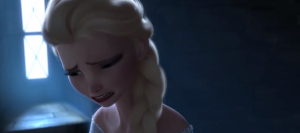
I’M THE ONLY THING BROUGHT OVER FROM THE ORIGINAL TALE BUT THEY COULDN’T EVEN GIVE ME MORE SCREEN TIME. AND NOW YOU CAN’T EVEN WRITE AN ESSAY FOR ME MAX, GOD YOU’RE USELESS.
If you’d made it this far, and bless you if you did, please know I do believe the Broadway show will ultimately provide a better story and iterations of both Anna and Elsa. Anything from forty-five minutes to an hour or more of extra content will certainly help fill in gaps of character and back story as well as pacing that hurts the narrative in its film form. The music is 100% modern Broadway anyway, and while that’s not entirely my cup of tea (there was a lot of tone dissonance) but it will adapt well. A lot of elements will likewise both be a challenge and a treat to see on stage (I’m imagining a carousel type stage for the sleigh scenes myself).
Other people have made great arguments and reviews that are much more concise and better than I could ever cough up. My two favorite reviews who are less than enthusiastic about the film but constructively so are CriticalHit’s review (here) and their additional talkback response to their review (here). I also enjoyed the more negative but very smart analysis from Cheshire Cat Studios (here) who gives a great breakdown about tropes, art direction, and even has a great segment about musicals and the film’s misteps regarding music. The latter is especially effective in describing the music of Frozen and the problem with modern Broadway in general.
I promise I’m not cold-hearted ( well, maybe there’s a shard or two of goblin mirror in there). I’m just very picky. I think Frozen’s cute. But I want better. There was a lot of lost opportunity. I think it could have been better. Hopefully on stage, it will be better.
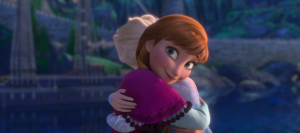
Anna reminds you Frozen is now available on DVD and Blu-Ray and on On Demand for you to watch 3 times in a row and get nothing done. Ever.
What do you think? Now that Spring has finally come, has your opinion of Frozen thawed or has it stayed consistently chilly? Do you think it could have been better? Was it perfection to you? Let me know!
See you all real soon!
Max Eber
Staff Writer/The Doctor
max@sub-cultured.com
Twitter: @maxlikescomics


